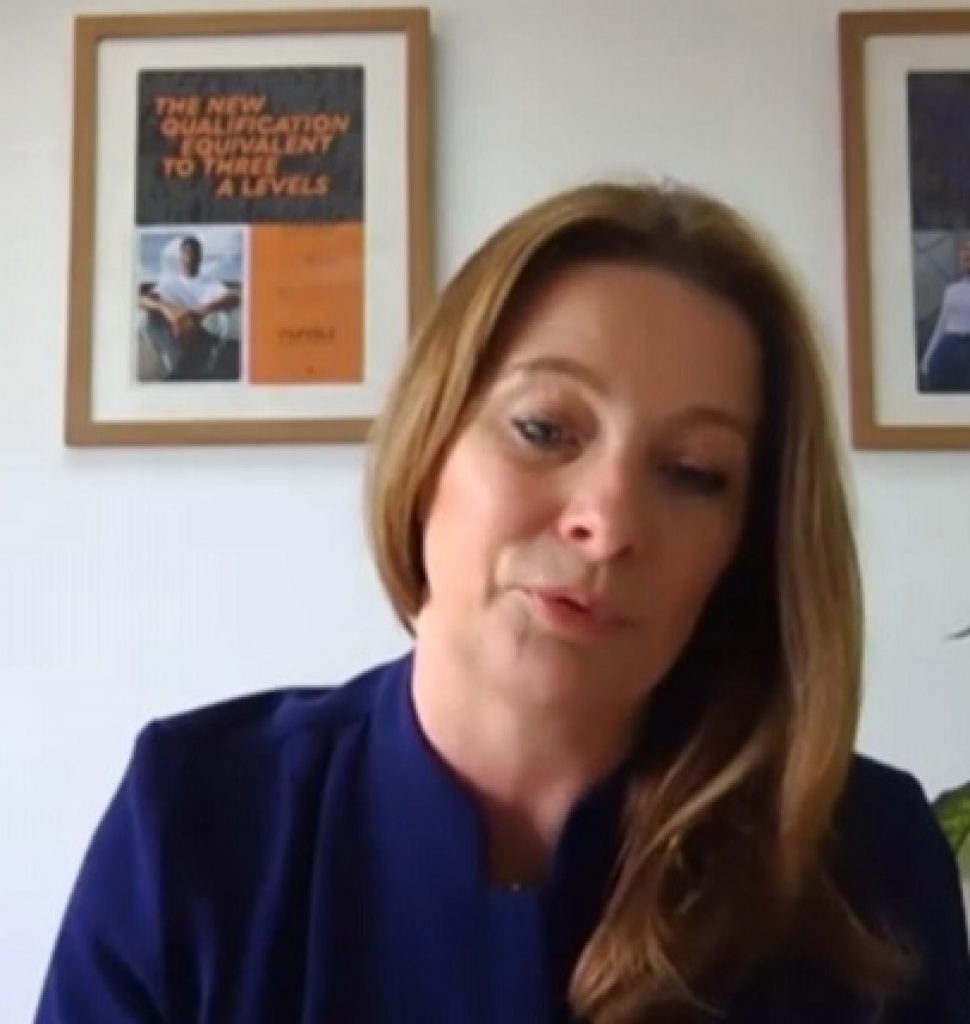Ministers have been urged to get a grip on access to degree-level apprenticeships after new research found the ‘middle-class grab’ on the courses is getting worse.
Social mobility charity the Sutton Trust released a report today that showed only five per cent of those starting a degree apprenticeship in 2020/21 were from lower income areas, compared with 6.7 per cent of those going to university.
Young apprentices from deprived areas made up six per cent of degree-level apprentices in 2018/19.
Sutton Trust said its research suggests that these apprenticeships are, in fact, not a more accessible pathway than the university route for those from low-income backgrounds, rhetoric that the government often pushes.
The charity called for measures to rebalance apprenticeships back towards disadvantaged young people after seeing soaring numbers of higher-level apprenticeships for older people since the introduction of the apprenticeship levy in 2017.
Then-skills minister Anne Milton was first to warn of a middle-class grab on apprenticeships in 2018. Her concerns have since been echoed by current skills minister Robert Halfon, albeit while he was chair of the education select committee, and current education secretary Gillian Keegan.
FE Week asked the DfE what action it has taken to address the issue in recent years, but Halfon has appeared to pass the buck to universities.
He told FE Week: “We’ve seen the popularity of degree apprenticeships grow and grow with over 148,000 starts since their introduction in 2014/15, but universities and higher education providers must do more to increase take-up and achieve parity of esteem with the traditional university route, encouraging people to feel that this is an option open to them, whatever their background.”
The Sutton Trust’s research, conducted by the London School of Economics and the University of Surrey, found the share of apprenticeships across all levels in the most deprived areas of the country has decreased from 26 per cent in 2015 to 20 per cent in 2020, compared to an increase in the most affluent areas from 14 per cent to 18 per cent.
Rebecca Montacute, senior research and policy manager at the Sutton Trust, said: “Our research has consistently highlighted that the apprenticeship programme isn’t delivering on its social mobility potential.
“Apprenticeships are at the heart of the government’s skills agenda, but we are still seeing the same issues year after year. It is vital that this government takes the action needed to boost apprenticeship opportunities for disadvantaged young people.”
She said the government could implement measures to “stop levy funds being used to train senior staff members, and target more opportunities towards young people” to make them more accessible.
Sandra McNally of University of Surrey and Centre for Economic Performance LSE, added: “The questions for policy makers arising from our report include whether there ought to be more explicit targeting of firm-level incentives towards younger people and how opportunities may be made more widely available for those from disadvantaged backgrounds.”
Ministers have repeatedly declared their desire for all universities to offer degree apprenticeships.
Learning and Work Institute chief executive Stephen Evans said higher apprenticeships are a “really great opportunity to boost social justice and social mobility”, but “only if we make sure that we widen access to them”.
He said part of this was higher education institutions and employers’ responsibilities, but it is the “government’s responsibility to coordinate”.
Evans added that it was “worrying” that no progress has been made on widening participation for degree-level apprenticeships as they’ve expanded, and that government appears to have “no overall strategy” to tackle this.
“It feels like there is a real gap in action and in knowledge here,” he told FE Week. “The fact that the stats haven’t moved on suggests that we need to increase our urgency or increase our action.”
John Blake, director for fair access and participation at the Office for Students, said earlier this year the higher education regulator asked all universities and colleges with an access and participation plan to “review and where appropriate expand their offering of degree apprenticeship and other non-traditional routes”.
“We will continue to encourage universities and colleges to continue to monitor and review their degree apprenticeship courses to ensure they are meeting our regulatory requirements and are providing students with positive outcomes,” he added.










Apprentices are workers, learners and individuals but sector commentators and the approach to research often choose a primary aspect and argue a point from there. This gives rise to many differing opinions. All that differing opinion informs policy and probably guarantees poor policy.
Or to put it more bluntly, research is commonly too narrow and there is not enough neutrality.
As an example – many reports use 2017 as a baseline, pre levy versus post levy and find that starts are down, then go on to form opinions. However, it’s very rare that you see a report come close to questioning whether the pre 2017 starts figure was at the right or wrong volume, mix or demographic make up. I’m sure many were criticising policy back then and now it’s used as a benchmark!